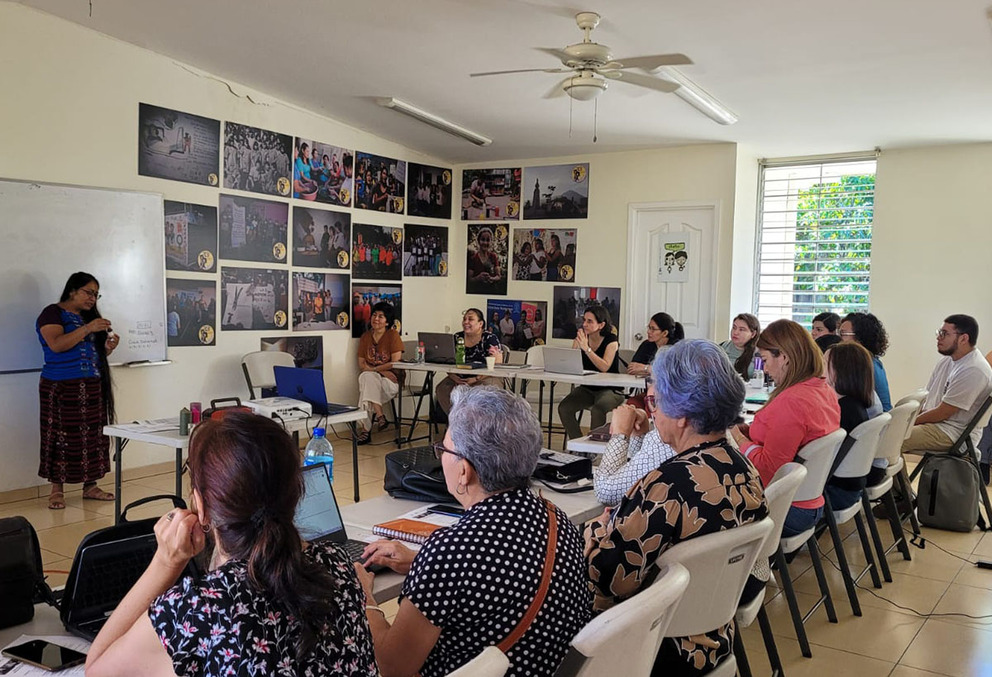
Collaborative Central American Meeting on Forced Disappearance: Focuses on Victims, Law, Psycho-Sociology, and Gender
On 18 and 19 January 2024, the Collaborative Central American Meeting on Forced Disappearance. Focuses on Victims, Law, Psycho-Sociology, and Gender was held in San Salvador. The event was organised by the Hegoa Institute, the “Madeleine Lagadec” Centre for the Protection of Human Rights, and the Cristosal Foundation, with support from Elankidetza - Basque Cooperation Agency for Development.
The Meeting enjoyed participation from more than 30 individuals representing 15 feminist and human rights movement organisations from three Central American countries: El Salvador, Guatemala, and Honduras. The aim was to exchange learnings from different perspectives on work revolving around forced disappearance associated with wars and repression in Central America, and to identify and strengthen common lines of work between organisations to advance local, regional, and international strategies to address impunity for this crime against humanity.
Organisations comprised of family members of victims such as the CODEFAM, CPDH Madeleine Lagadec, the El Salvador Pro-Memory Committee, and the COFADEH of Honduras explained their trajectories on search efforts and their most important lessons learned in this fight. Along this same line, the Cristosal Foundation and the El Salvador Pro-Búsqueda Association focused their reflection on legal strategies, while the Guatemala Forensic Anthropology Foundation (FAFG) did so from a forensic perspective.
Representatives from the UCA, the University of El Salvador (UES), and the CALDH of Guatemala focused their analysis on psycho-social and healing processes with the family members of victims of forced disappearance. The La Cuerda Association of Guatemala and the Servicio Social Pasionista (SSPAS), together with the feminist association Las Dignas, offered debate from a feminist perspective. In addition, Transitional Justice Law draft bill proposals from the victims organisations and human rights organisations from Honduras and El Salvador were analysed, contrasting their contents and paths forward.
The Meeting closed with the collective creation of a set of proposals to build regional and international alliances to demand truth and justice, and lead to repairing damage done in this area.
Related news




